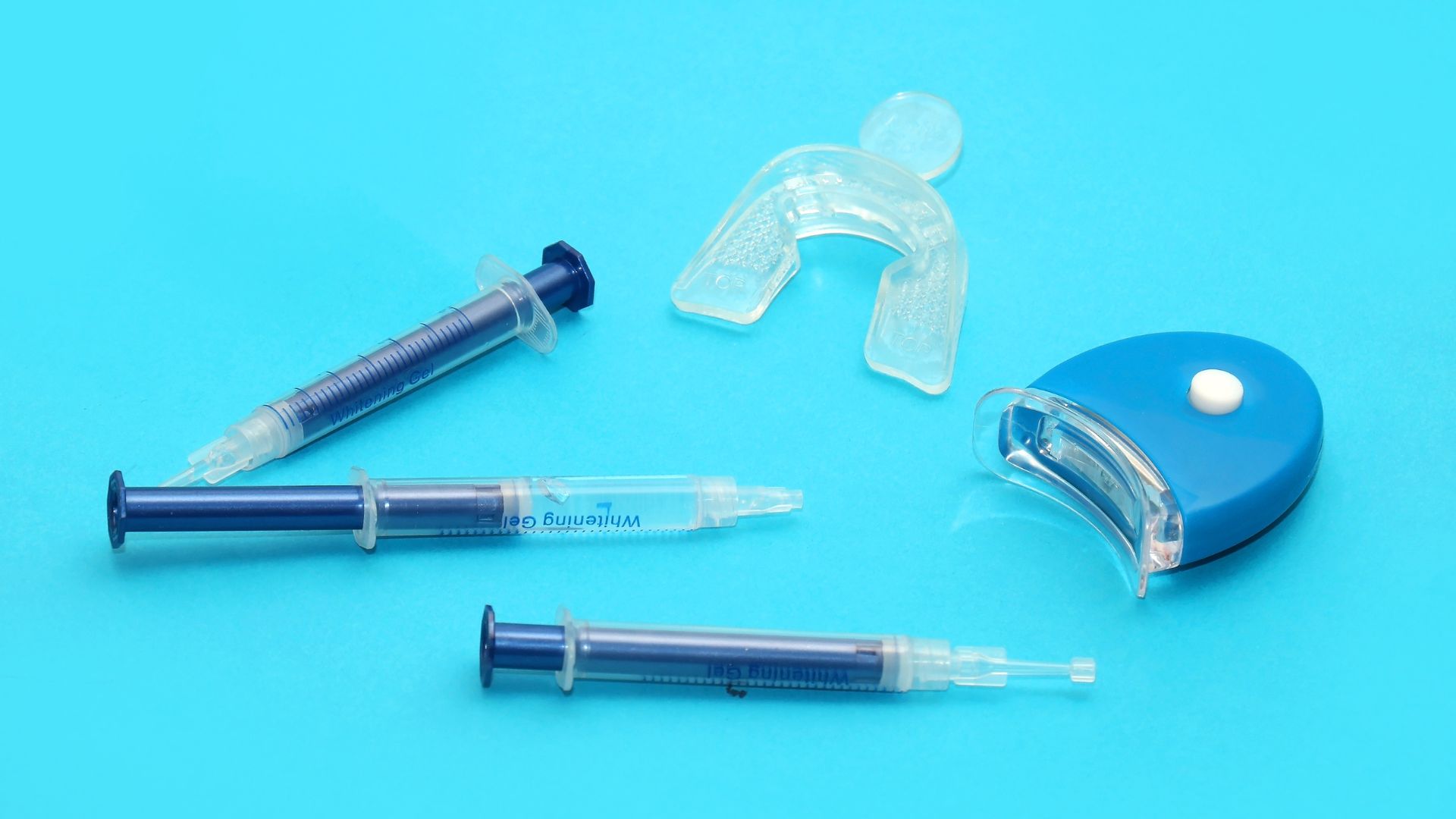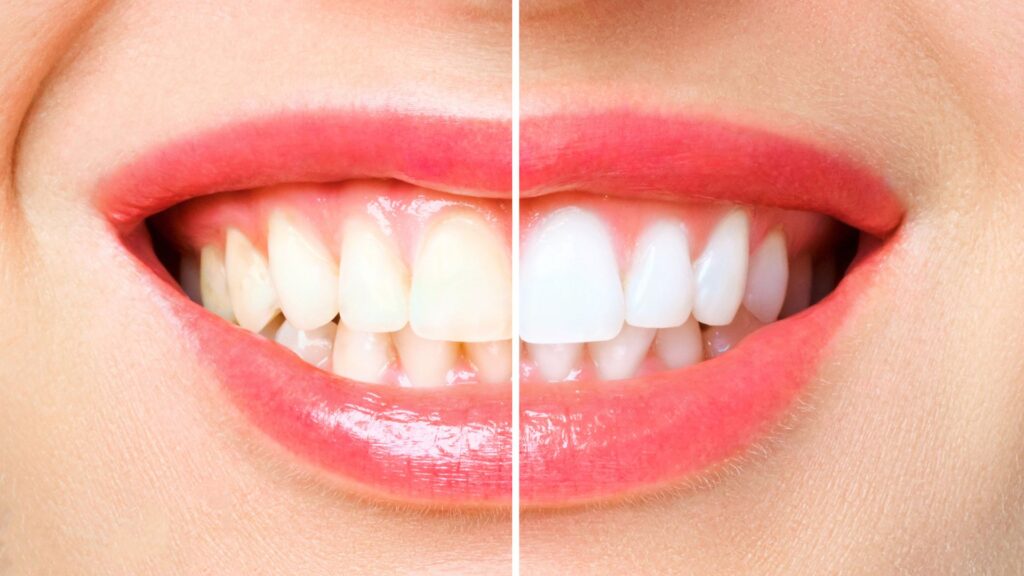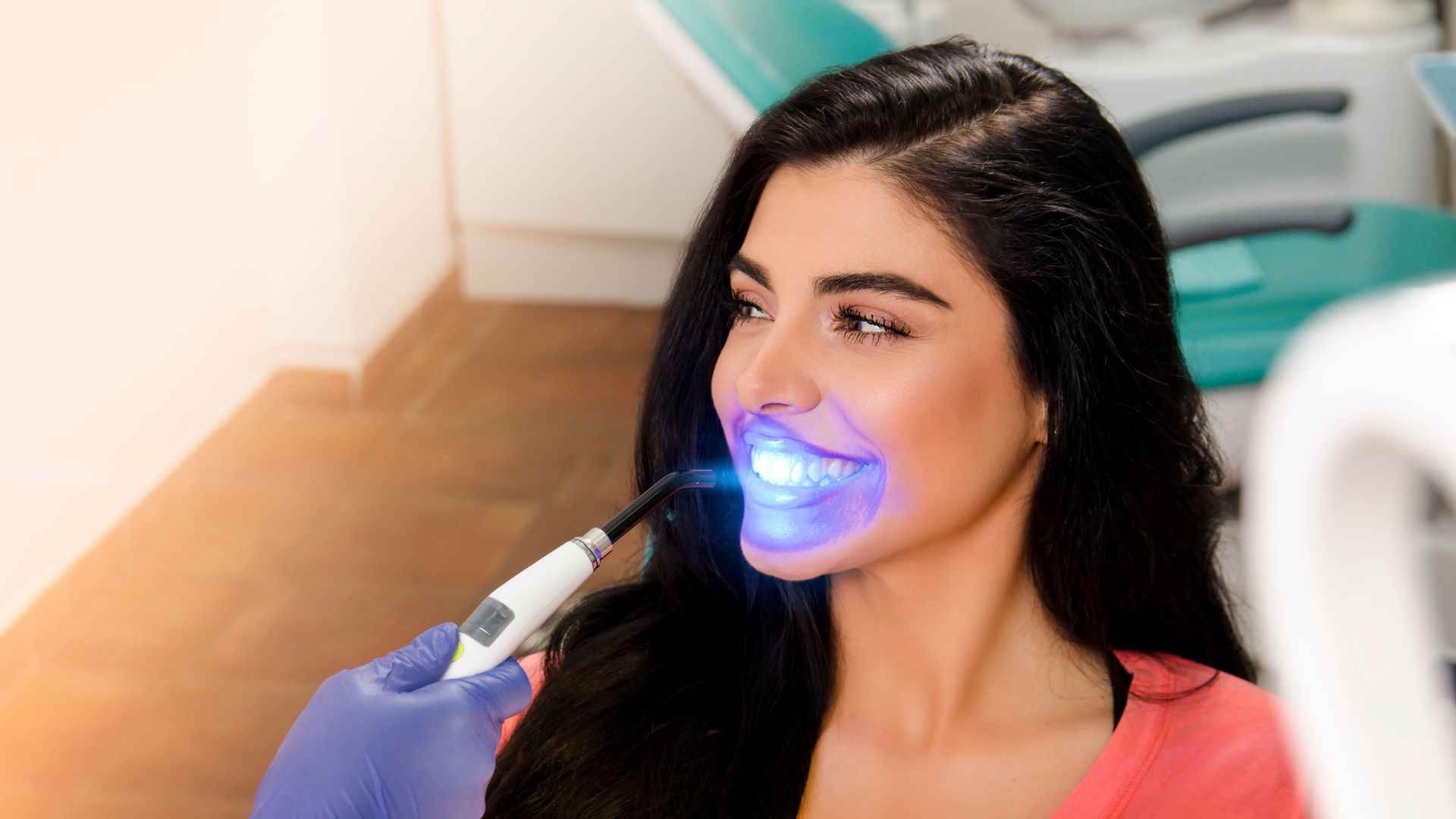A bright smile is often associated with confidence and good oral health. Over time, teeth can lose their natural shine due to age, lifestyle habits, or certain medical conditions. If you are looking to restore your smile, there are several safe teeth whitening options available.
As part of cosmetic dentistry in Mira Road, patients at Family Dental Clinic often ask about the differences between professional whitening, at-home kits, and natural remedies. This guide explains each method clearly to help you make an informed decision.
Why Do Teeth Lose Their Natural Whiteness?
Teeth discoloration happens for many reasons. Common culprits include tea, coffee, wine, and tobacco. Certain medications and aging also contribute as enamel thins and dentin becomes more visible. Poor oral hygiene habits can further speed up discoloration. Understanding the cause helps in choosing the best teeth whitening method for your case.
In-Clinic Teeth Whitening Treatments
Professional teeth whitening at a dental clinic remains the most effective option. Treatments such as laser whitening or dentist-supervised bleaching gels provide faster results. A dentist carefully applies regulated whitening agents, ensuring safety and monitoring any side effects like temporary sensitivity.
The main advantage is consistency and safety. Results can often be seen in just one or two sessions, and they usually last longer than over-the-counter methods. Although costs may be higher, patients gain peace of mind knowing that experts handle their treatments.
According to the Indian Dental Association, teeth whitening should always be performed or supervised by a registered dentist to ensure safety and effectiveness.
For patients exploring cosmetic dentistry in Mira Road, professional whitening is often the first step in a smile makeover plan, offering safe and predictable results.

At-Home Teeth Whitening Kits
At-home whitening kits are popular because they are convenient and more affordable than in-clinic treatments. Options include whitening strips, gels, trays, and even LED light kits. While they can brighten teeth, results generally take longer, and there is a higher risk of uneven whitening if instructions are not followed carefully.
Dentist-recommended kits are safer compared to generic store-bought ones. Custom-fitted trays help prevent gum irritation and improve effectiveness. Over-the-counter products may work, but often require weeks of use for noticeable results.
Natural Teeth Whitening Remedies
Some people try baking soda, activated charcoal, or oil pulling to whiten their teeth. While these remedies are inexpensive, scientific support is limited. Overuse of abrasive agents like baking soda or charcoal can wear down enamel and irritate gums. Oil pulling may freshen breath, but it does not offer proven whitening benefits.
It is important to remember that natural remedies cannot match the results of professional whitening and should be approached with caution.
Safety, Effectiveness, and Myths Around Teeth Whitening
Many myths surround teeth whitening. A common belief is that whitening damages enamel. In reality, when done correctly under professional guidance, enamel remains safe. Another myth is that natural remedies are always harmless. In truth, some can erode enamel if used excessively.
Whitening may cause temporary sensitivity, but this usually fades in a few days. Dentists often recommend special toothpaste to manage discomfort. What matters most is using methods approved by dental professionals rather than relying solely on unverified home tricks.
A 2022 study published in the Journal of Dental Research found that professional whitening treatments under dentist supervision show more consistent and lasting results compared to over-the-counter products.
“No whitening method is permanent. Lifestyle habits and diet will affect how long results last.” – World Health Organization Oral Health Division.
Choosing the Right Whitening Option for You
The right option depends on factors such as stain severity, budget, and personal goals. In-clinic whitening is ideal if you want quick, reliable results. At-home kits suit those looking for gradual improvement. Natural remedies can be tried occasionally, but should never replace professional care.
Since whitening results vary, consulting a dentist is the safest way to find out what will work best for you. At Family Dental Clinic in Mira Road, dentists guide patients through available treatments and help create safe, customized plans for long-term oral health.
Comparison Table: Teeth Whitening Options
|
Method |
Who Performs It | Cost (Approx.) | Time to See Results | Safety Level |
Longevity of Results |
| In-clinic professional | Dentist | Higher | 1–2 sessions | Very High | 1–3 years (with care) |
| At-home kits (dentist) | Patient guided | Medium | 1–2 weeks | High | 6–12 months |
| Over-the-counter products | Self-use | Low | 2–4 weeks | Moderate | Few months |
| Natural remedies | Self-use | Very Low | Uncertain | Low | Unreliable |
FAQs
Is teeth whitening safe for everyone?
Teeth whitening is generally safe when supervised by a dentist. Individuals with cavities, gum disease, or highly sensitive teeth should receive treatment before undergoing whitening.
How long does professional teeth whitening last?
Results may last between one and three years. Lifestyle choices like smoking and consuming staining drinks affect longevity. Regular dental checkups help maintain results.
Are natural teeth whitening methods effective?
Most natural remedies offer limited or inconsistent results. Some, like baking soda or charcoal, can harm enamel if overused. They are not a substitute for dentist-supervised whitening.
Will teeth whitening make my teeth sensitive?
Mild sensitivity is common after whitening. It usually disappears within a few days. Dentists can recommend products that reduce discomfort and protect teeth.
What’s the difference between dentist-recommended kits and store-bought kits?
Dentist-approved kits use regulated formulas and customized trays that provide better results and reduce risks. Store-bought kits are less precise and may cause uneven whitening.
Can whitening damage my enamel permanently?
Professional whitening under dental supervision does not harm enamel. Problems arise when unregulated or harsh products are misused without guidance.
Conclusion
Teeth whitening can boost confidence, but the method you choose matters. In-clinic treatments offer reliable and safe results, while at-home kits provide a slower but more budget-friendly option. Natural remedies are limited in effectiveness and may carry risks.
The most important step is consulting a qualified dentist in Mira Road before starting. At Family Dental Clinic, patients receive personalized guidance to choose the safest and most effective whitening method. And for those considering a complete smile transformation, cosmetic dentistry in Mira Road offers a full range of treatments designed to blend science, safety, and artistry for lasting results.







